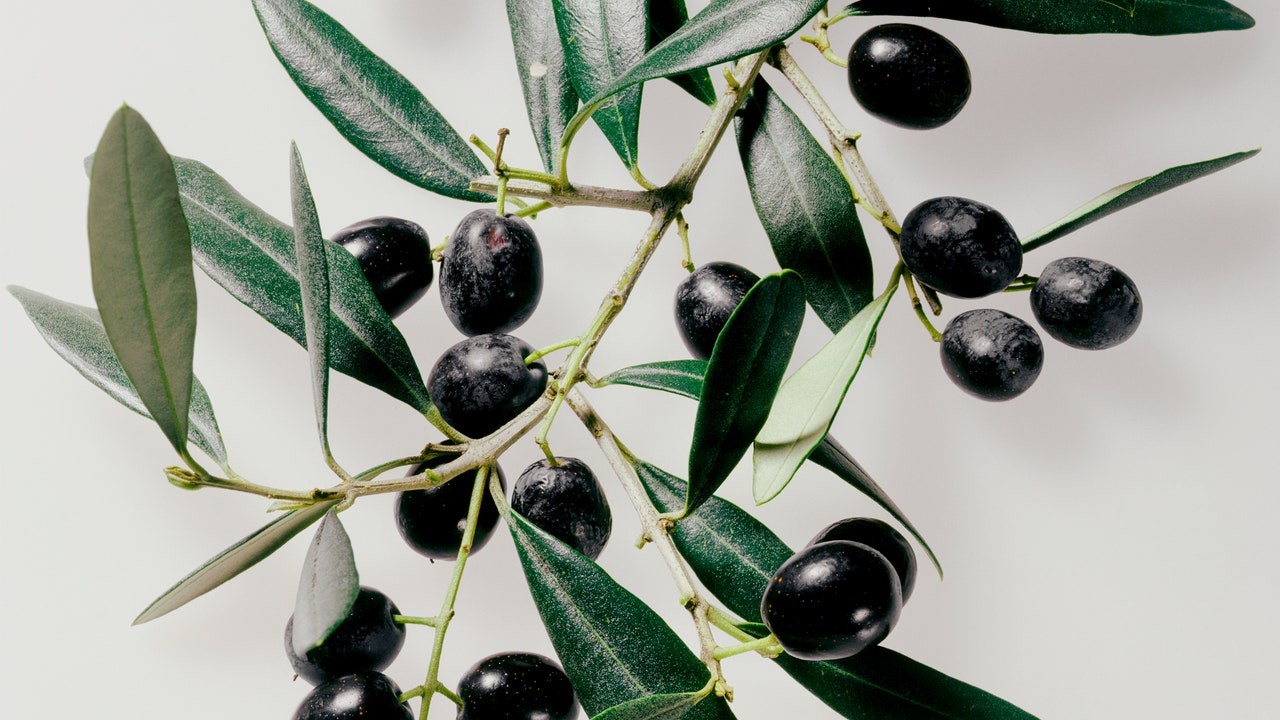
In the ongoing search for healthy snack options, black olives often get overlooked. But the quintessentially Spanish pintxo is surprisingly high in nutritional benefits. “Olives are much more than a simple snack—they are a functional food with antioxidant, anti-inflammatory, and cardioprotective properties,” explains Yaraseth del Castillo Ortega, nutritionist at the Antiaging Medical Institute in Madrid. “They provide healthy monounsaturated fats—especially oleic acid—which helps reduce systemic inflammation and protect the cardiovascular system. They are also an excellent source of vitamin E, iron, and fiber, and stand out for their high content of phenolic compounds such as oleuropein and hydroxytyrosol, both with potent neuroprotective and anti-aging action.”
Polyphenols for perimenopause
More impressively, the polyphenols in black olives might help with the symptoms associated with perimenopause and menopause. “This is when the female body undergoes increased oxidative stress, greater metabolic instability, and inflammatory changes,” says Castillo Ortega, who notes that a healthy diet can ease perimenopause symptoms and a diet rich in polyphenols has been shown potential in mitigating inflammation and oxidative stress.
To that end, the Anti-Aging Medical Institute, considers olives “a traditional, accessible, and scientifically-backed food,” says Castillo Ortega. “In our personalized approach to women’s health, their value goes far beyond taste—they are a small, therapeutic tool that we use with precision within our package of nutritional strategies focused against inflammation and in favor of metabolism and hormonal health.”
Nutritional benefits of black olives
According to Interaceituna, Spain’s interprofessional organization of table olives, there are over 200 varieties of olives. However, most of us are familiar with just a few of them. “There are three main types of olives,” the team at Interaceituna explains, adding that the color of the olive depends on when it is harvested. “Green olives are harvested from the tree before they are ripe; purple, pink, or brown olives are harvested without having completed their ripening; and black olives are harvested after they’ve ripened. They acquire their intense black color after the production process.” Castillo Ortega considers black olives especially interesting for the following benefits:
Rich in iron
“Black olives contain more iron than green olives, which is useful for women with a tendency to anemia or chronic fatigue,” she says, adding that 100 grams of black olives (about 20-30 olives) contain approximately 3.3 milligrams of iron, which is about 18% of the daily recommended intake for adults.
High in antioxidants
“Black olives also tend to have a higher concentration of hydroxytyrosol, one of the most bioavailable antioxidants that exists,” says the nutritionist. “In addition, olives of any type are a source of vitamin E, which helps protect cells against oxidative damage,” Interaceituna notes
Improve insulin resistance
As if that were not enough, the specialist from Instituto Médico Antiaging point to a 2024 study from the University of Granada that identified a compound present in black olives, β-resorcylic acid, which has the capacity to reduce fat mass without affecting muscle, improve insulin resistance, and support metabolism. “This finding opens new avenues in the prevention of metabolic diseases from functional nutrition,” notes Castillo Ortega.
Protect the colon
Castillo Ortega also points out that studies into the intestinal impact of olive skin compounds have shown that they can reduce the formation of intestinal polyps by 45%, suggesting an interesting potential role in the prevention of colorectal cancer.
Balance cholesterol
Black olives contain oleic acid, an unsaturated fat that contributes to maintaining normal blood cholesterol levels.
Contain probiotics
When olives have been naturally fermented in brine, they preserve beneficial live bacteria such as Lactobacillus plantarum, which offers a probiotic effect that helps balance the intestinal microbiota, improve digestion, and strengthen the immune system. However, “it is important to differentiate that many commercial olives have been pasteurized or chemically treated, completely losing this added value,” note Castillow Ortega. “For this reason, from Instituto Medico Antiaging recommends looking for artisanal or organic varieties that conserve their bioactive properties and are naturally fermented.”
How many black olives should I eat a day?
“Many nutritionists recommend the daily consumption of about 25 g of table olives, or seven olives a day, seven days a week,” says the team at Interaceituna. According to Castillo Ortega, “this quantity provides approximately the same amount of healthy fats and antioxidants as a spoonful of extra virgin olive oil. It is a safe, satiating, and beneficial dose if you choose natural varieties fermented in brine and with low salt content.”
In addition, the expert refers to a 2022 study from the Harvard T.H. Chan School of Public Health that shows that regular consumption of olive oil (and by extension olives) is associated with a significant reduction in the risk of death from cardiovascular disease, cancer, and neurodegenerative disorders. All the more reason to eat your daily dose of seven black olives.
#Black #Olives #Perfect #Perimenopause #Snack






